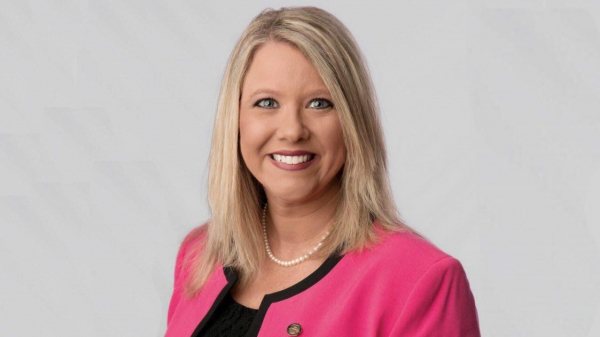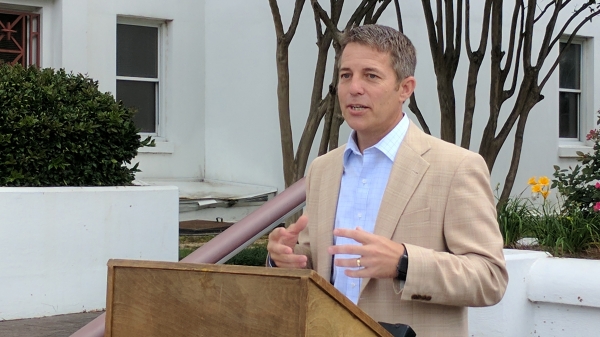By Chip Brownlee
Alabama Political Reporter
MONTGOMERY — A bipartisan group of North Alabama legislators want an alternate considered to Gov. Robert Bentley’s plan to build four new “mega” prisons with an $800 million bond issue.
Rep. Johhny Mack Morrow, D-Rebay, Rep. Ed Henry, R-Decatur, and Rep. Danny Crawford, R-Athens, on Tuesday discussed a tentative plan that would call for the State to contract with county and municipal jails to house State inmates.
They said the plan would be cheaper, more efficient and more amenable for rural legislators.
“Let’s look at alternatives,” Morrow said. “Let’s don’t sink into $50 million a year debt. We’re going to put our grandchildren $50 million a year.”
In January 2015, the Alabama Department of Corrections had contracts with nine county jails to house 330 inmates at $15 per day. In total, the contracts cost $1.8 million in the 2015 fiscal year. ADOC also contracted with the Alabama Therapeutic Education Facility in Columbiana to house 700 inmates at $32 per day.
After budget reductions last year, ADOC canceled the contracts with the county jails, pulling the inmates in the county jails back into the State prison system. A spokesperson for the Department of Corrections said the pullbacks were to mitigate the budget reductions.
There was a $7-per-day marginal cost associated with bringing the inmates back into ADOC facilities.
Morrow and Henry don’t buy it though. According to them, it costs more than $40 a day to house inmates in State prisons — more than twice as much it costs to house them in the county jails.
According to ADOC’s 2015 fiscal year report, the average daily system-wide inmate cost was $47.69. ADOC did not immediately return requests for comment on how pulling the inmates back to State prisons would save money.
“They probably did it to present the problem of overcrowding,” Morrow said.
Alabama’s prisons are maxed out. Many of the State’s prisons are at two- to three-times capacity, which prompted Bentley’s prison construction plan.
“The narrative from the executive branch is that if you don’t have a crisis, create one,” Henry said. “We’ve seen it with driver’s licenses, and we’ve seen it with various other instances.”
Morrow suggested that the State could bump per diem payments to county jails and send more low- and medium-security inmates back into county jails, saving the State money and providing more work-release inmates for county public works projects.
Two representatives from CBS Structures Inc., a Mississippi-based contracting company that provides composite-based structures for the US Department of Defense, said they could help cities and counties expand their jails to accommodate the new inmates.
CBS has built jails for Roanoke, Alabama, and several cities in Mississippi, along with its work with the Department of Defense, FEMA and the US Housing and Urban Development Agency. Their designs use composite materials like fiberglass instead of typical brick-and-mortar materials at three-fourths the cost, they said.
If the State worked with counties to expand their jails, then ADOC could house more inmates at a lesser cost, Morrow and Henry said.
This new proposal comes as the Senate version of the bill authorizing Bentley’s Alabama Prison Transformation Initiative is expected to be considered by the Senate Judiciary Committee on March 1.
The plan would authorize the Department of Corrections to issue an $800 million bond to construct three new 4,000-bed men’s prisons and a new women’s prison.
Senate Judiciary Committee Chairman Cam Ward, R-Alabaster, said last week that he wanted to have time to gather more feedback on the bill as it currently stands before bringing it before the Judiciary Committee for review.
“I want to have time for both sides of the aisle to have input on it,” Ward said. “I don’t want to rush. I want to make sure that everyone who has concerns feels like their concerns are being addressed before we ever get started.”
The prison construction plan — which would consolidate 13 of Alabama’s 17 aging men’s prisons into three newly constructed prisons — is the brainchild of ADOC Commissioner Jeff Dunn and is Bentley’s top priority during this legislative session.
The bond would end up costing the State about $1.5 billion over the 30-year repayment period. The Department of Corrections says operational savings from the new prisons would save the State about $50 million a year — enough to finance the bond’s annual payment.
Morrow said his plan would not require any new legislation. It would only require working with the Department of Corrections to get more inmates into county jails. The legislators plan to hold an information session in the coming weeks for other legislators.

















































You must be logged in to post a comment Login